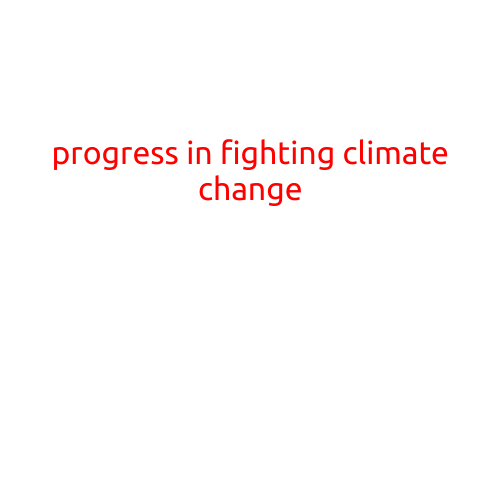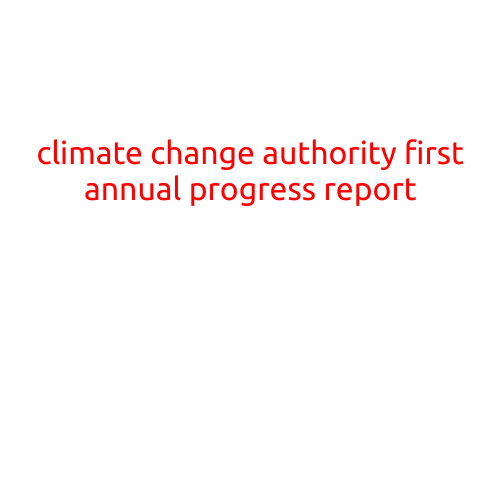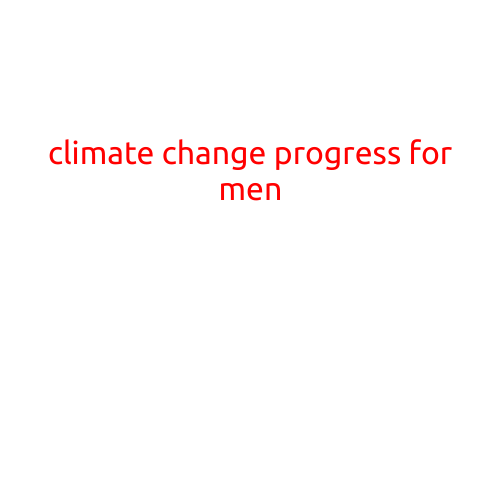
Progress in Fighting Climate Change: A Glimmer of Hope
As the world grapples with the pressing issue of climate change, it’s easy to feel overwhelmed by the enormity of the problem. Rising temperatures, melting ice caps, and devastating weather events dominate the headlines, leaving many wondering if it’s too late to make a difference. However, amidst the gloom, there are signs of progress in the fight against climate change, offering a glimmer of hope for a sustainable future.
Renewable Energy on the Rise
One of the most significant developments in the fight against climate change is the rapid growth of renewable energy. In 2020, renewable energy accounted for 26% of global electricity generation, up from 21% in 2015. Wind and solar power have emerged as leading sources of clean energy, with costs decreasing dramatically over the past decade. This shift is expected to continue, with the International Energy Agency (IEA) predicting that renewables will surpass fossil fuels by 2050.
Electrifying Transportation
Another significant area of progress is the electrification of transportation. Electric vehicles (EVs) are gaining popularity, with sales increasing by over 150% in 2020 compared to the previous year. Governments around the world are implementing policies to encourage the adoption of EVs, such as incentivizing purchases and investing in charging infrastructure. As a result, EVs are expected to become the dominant form of transportation in many countries by 2050.
Carbon Capture and Storage
Carbon capture and storage (CCS) technology has also made significant progress in recent years. CCS involves capturing CO2 emissions from power plants and industrial processes, then storing them underground. This technology has the potential to reduce emissions from hard-to-abate sectors like cement and steel production. Several countries have implemented CCS projects, and the technology is expected to play a critical role in meeting global carbon reduction goals.
Sustainable Agriculture
Another crucial area of progress is sustainable agriculture. The way we produce and consume food has a significant impact on the environment, with agriculture accounting for around 24% of global greenhouse gas emissions. However, innovation in sustainable agriculture practices, such as regenerative agriculture and agroforestry, is helping to reduce emissions and improve soil health. Additionally, plant-based diets and reduced food waste are becoming increasingly popular, further reducing the environmental footprint of the food system.
International Cooperation and Policy
Finally, there is a growing sense of international cooperation and policy momentum on addressing climate change. The Paris Agreement aims to limit global warming to well below 2°C above pre-industrial levels and pursue efforts to limit it to 1.5°C. Many countries have submitted their Nationally Determined Contributions (NDCs), outlining their plans to reduce emissions and adapt to the impacts of climate change.
In conclusion, while the fight against climate change is far from won, there are encouraging signs of progress in various areas. Renewable energy, electrified transportation, carbon capture and storage, sustainable agriculture, and international cooperation and policy all hold promise for reducing emissions and mitigating the impacts of climate change. As the world continues to evolve and adapt to the challenges posed by climate change, it’s essential to remain optimistic about the potential for collective action to create a more sustainable future.





